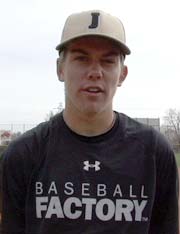The Truth About Junior College Baseball
There has always been a myth surrounding Junior College baseball, in that it serves as a last resort for aspiring college players. This thought couldn't be further from the truth. Junior college baseball can serve as the perfect fit for some high school players. It all depends on each individual player's standing, both academically and athletically, and in many cases, a junior college will end up being an ideal fit for the player for his first two years of higher education.
A junior college might be an excellent place for a player to start if he needs to work on his academics. If a player is ineligible to play Division I, II, III or NAIA, a good junior college can serve as a stepping stone to help catapult the player's grades, so that he may be eligible for a different college program in the future. And while the player is working on improving his grades, he will have the opportunity to progress on the field as a member of the respective baseball program. Going to a junior college also helps a player to finish his prerequisites, so that he may decide on a major. Prerequisites are meant to give young students a chance to explore many different academic areas, so they will know what they want to concentrate on in their studies as they advance towards a degree. The junior college route may also be a good choice for players who, on an initial attempt, did not get accepted into a particular school of their choice. In other words, just because you are academically eligable does not mean that you will automatically be accepted to the particular school. It simply means that you can play baseball IF you are accepted. For example, you could have a 3.0 GPA and a 1050 on your SAT which would make you eligible to play baseball in college, but that wouldn't guarantee acceptance into an Ivy League school.
The junior college path may also prove to be ideal for a player if the player is not getting the attention that they want from four-year universities. If a player has aspirations to play Division I ball but is not being heavily recruited, then a junior college may help him develop his skills. A lot can happen in two years at a junior college. You can get bigger, stronger, and quicker, all of which may impress a DI coach who may not have recruited you initially. When players are not receiving the attention that they are hoping for, Junior College can be a very good route to take. A player also has a much better chance of improving if they are continually playing and working hard. Going to a four year university and sitting your first couple of years will not help your development as a baseball player. You certainly will get all the practice that you can, but it is the game type scenarios that define a player and help the player to truly mature.
Lastly, a player may choose to play at a junior college if they are interested in playing professionally. Players are eligible for the Major League Baseball draft out of high school. However, if a player attends a four-year university, they are not eligible for the draft again until after their junior year of college. If you attend a junior college, you are eligible for the draft after your first and second years. In other words, a player could conceivably be drafted three times before ever attending a four-year university, provided that the player doesn't sign any of the times that he has been drafted.
When all is considered, junior college is just another route to take to play college baseball and the option should never be overlooked. It may not initially seem like the best path for you as a player, but do not just dismiss this option without exploring it. Just as with NCAA baseball, there are divisions (I, II, II) within the junior college level and in fact, athletic scholarships are available at the Division I and II level of junior colleges. It is very important that all players investigate all opportunities available to them; there is no reason to limit yourself during this important part of your baseball career.
Things to remember when choosing a Junior College:
- What division does the school play in?
- History of program?
- Number of games?
- Percentage of players that move on to four-year schools?
- Academics?
- Housing?
- Scholarships?
- Facilities
Student-athletes can approach the college recruiting process in a number of ways based on their academic and athletic standing as well as their interests and goals. Baseball Factory's Exclusive Program can help players sort through the chaos and find the perfect path for them.











